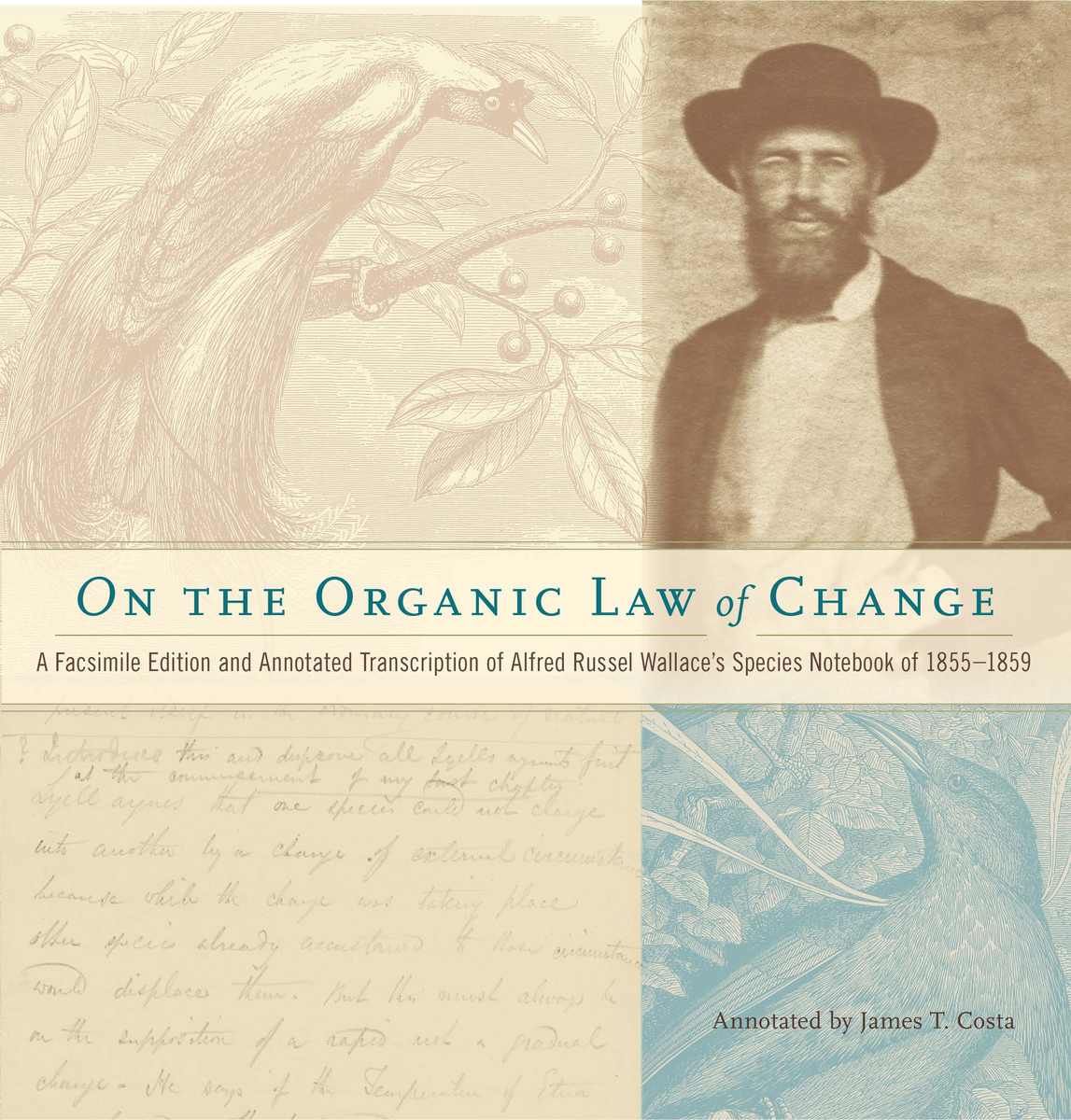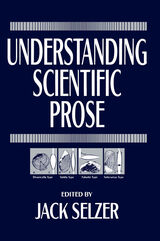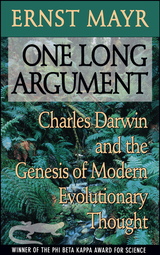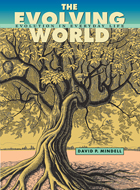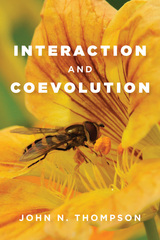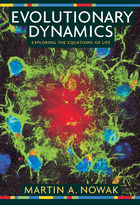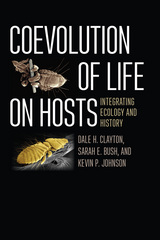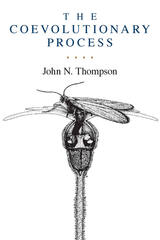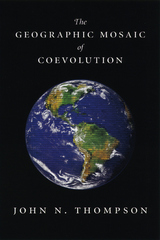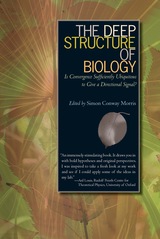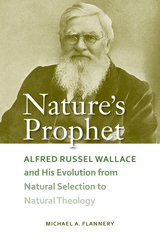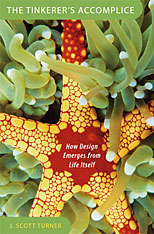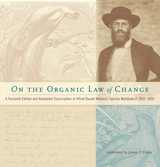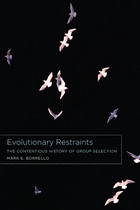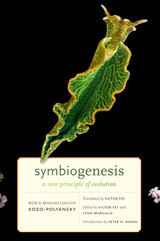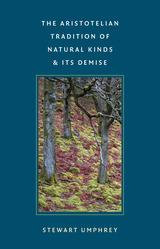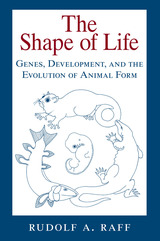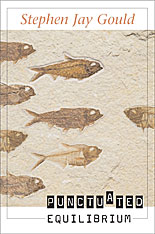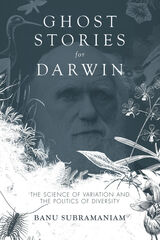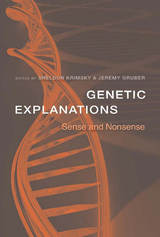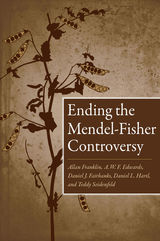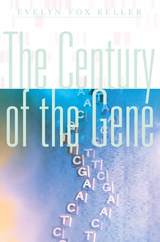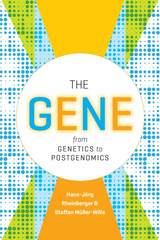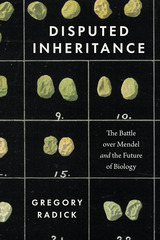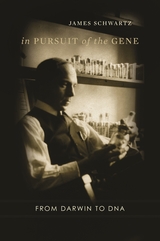On the Organic Law of Change offers the first detailed analysis of Wallace's 'Species Notebook' by an evolutionary biologist and is the most important study of the development of Wallace's evolutionary ideas attempted by anyone so far. Costa is uniquely placed to have done this work; not only does he have an excellent grasp of evolutionary theory, but he also has a detailed understanding of the early history of the subject including the development of Darwin's ideas about evolution.
-- George Beccaloni, Curator of Orthopteroid Insects and Director of the A.R. Wallace Correspondence Project, Natural History Museum, London
A triumph of careful research. The annotations are illuminating in all regards.
-- Janet Browne, Aramont Professor of the History of Science and Chair of the Department of the History of Science, Harvard University
Alfred Russel Wallace's 'Species Notebook' is surely one of the most important documents in the history of science. Jim Costa's deft annotations do more than just explain, synthesize, and contextualize this day-to-day account of Wallace at work: they bring his interests and ideas--and Wallace himself--to life. It is truly an unusual privilege to have such a direct view into the workings of an extraordinary mind in the act of formulating some of the most powerful and effective ideas in all of science.
-- Andrew Berry, Lecturer on Organismic & Evolutionary Biology, Harvard University
An important new book…The notebook itself is part diary, part field notes and part log of each day's collecting. Its pages are filled with observations, beautiful drawings and daily tallies of specimens. But this is also where Wallace wrote his thoughts, analyzed papers and developed his evolutionary ideas.
-- Stephanie Pain New Scientist
Costa’s book is thus the first publication of what has been left to us of Wallace’s intended book; and we owe a debt to him for making it available at last…Wallace was a polymath, to be sure, and probably among the last to be so, which makes him one of the most interesting figures in the history of English-language ideas…You need to read the man for yourself, and Costa’s book provides you with one more important way to do this.
-- David A. Morrison Systematic Biology
This is a very fine treatment of a complicated story; it benefits from being told by a scientist who understands the biology involved, and who has not taken liberties with documenting the history of Wallace’s thought process. This may well be the best single overview of this important episode in the history of thought yet produced, and I highly recommend it.
-- Charles H. Smith Reports of the National Center for Science Education
Let me say it right up front: I love this book! Reading it is a bit like listening in on the musings of an eminent colleague, trying to follow their train of thought, catching bits of their reasoning and ideas, and being impressed by their knowledge and insights. Tracing the development of Wallace’s thinking on biogeography and evolution as shown through this notebook is both a challenge and a pleasure. Watching him tussle with concepts, such as the definition of a species or the distinction between variety and species, is fascinating. These are concepts that biologists and palaeontologists still struggle with and discuss. Reading about his energetic collecting activities is also absorbing, even though his accounts of orangutan hunts are harrowing…In presenting the Species Notebook to us, Costa has produced a work of admirable scholarship. This book will certainly help to elevate Wallace to his rightful place in the pantheon of 19th century natural scientists and garner him additional respect as an original and perceptive thinker.
-- Alwynne B. Beaudoin Canadian Field-Naturalist
The Species Notebook constitutes a major document in the development of nineteenth-century evolutionary thought, and Costa’s beautifully produced and deftly annotated facsimile edition now makes this previously unpublished record of Wallace’s observations and thinking from the crucial pre–Origin of Species period widely available to scholars and the general public…Costa and Harvard University Press are to be congratulated for this handsome addition to Wallace studies.
-- Martin Fichman Isis
